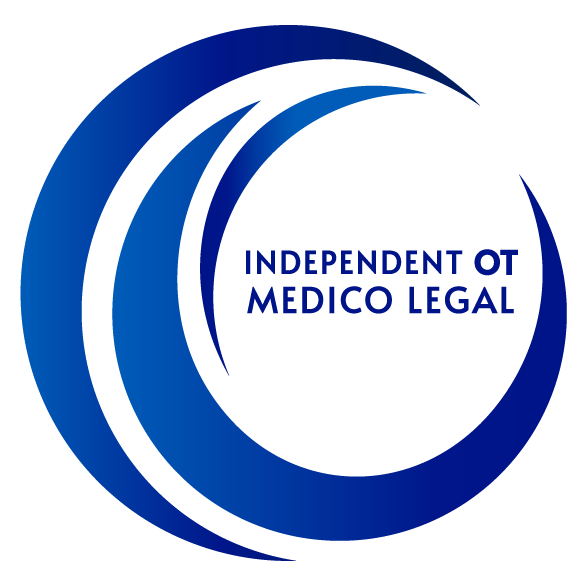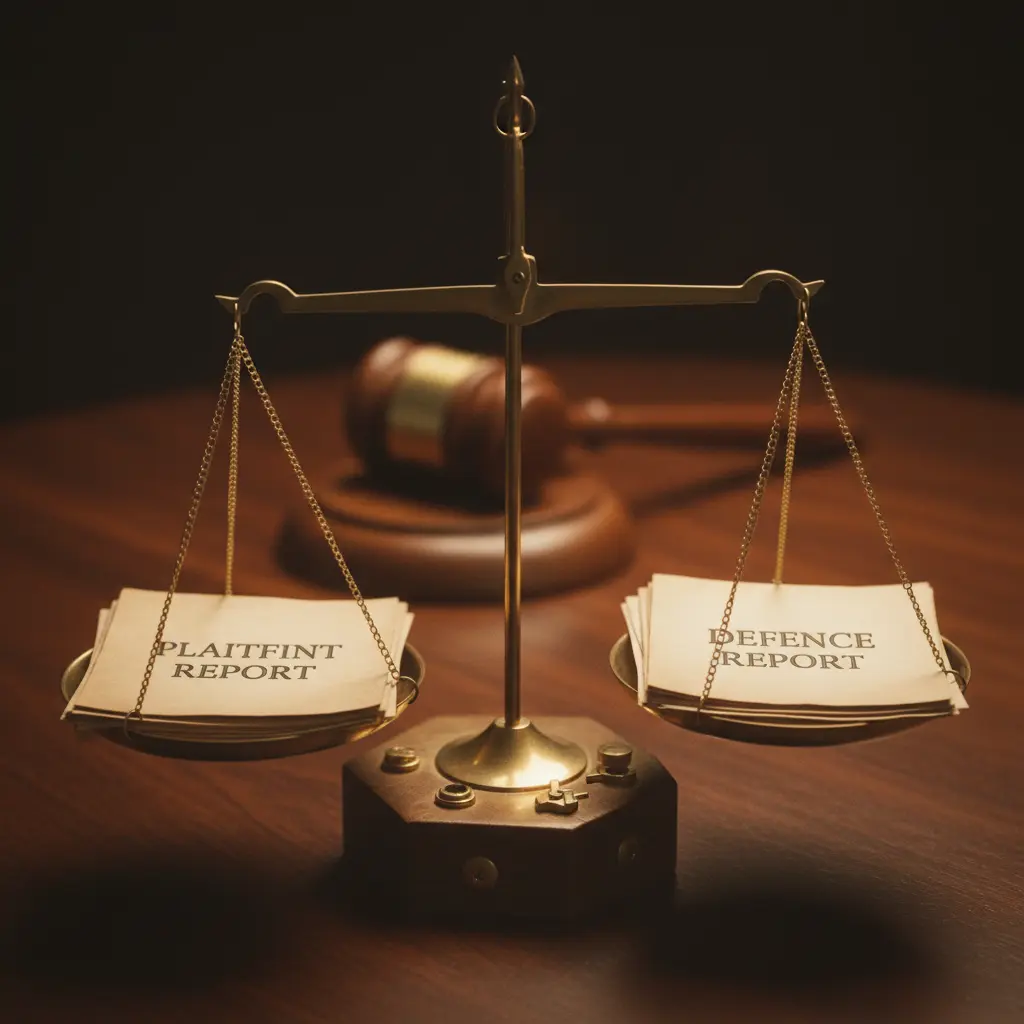In the complex world of legal proceedings, independent medico-legal reports serve as crucial evidence that can significantly impact case outcomes. These comprehensive assessments provide objective medical opinions that courts and legal professionals rely on when determining liability, assessing damages, or evaluating injury claims. In the case of an occupational therapy medico-legal report, comment is not made regarding medical diagnoses or liability, but rather discuss and cost the care and equipment required as a result of the injury or impairment.
Independent medico-legal reports carry substantial weight because they come from neutral healthcare professionals who have no vested interest in the case outcome, offering credibility that can withstand scrutiny in legal settings.
We’ve observed that quality medico-legal documentation can make the difference between successful and unsuccessful legal claims. When solicitors present well-documented, professionally prepared independent assessments, they strengthen their client’s position with factual evidence rather than subjective claims. This objectivity is particularly valuable in personal injury cases, workers’ compensation claims, and medical negligence matters.
The Australian legal system increasingly recognises the value of specialised medical and allied health expertise in legal proceedings. As qualified occupational therapists with extensive experience across a range of scenarios, we understand the nuanced requirements these reports must satisfy to be effective in court. Our goal is to help you understand why these reports matter and how they can support your legal strategy.
Legal Significance and Admissibility
Independent medico-legal reports serve as crucial evidence in legal proceedings, carrying substantial weight when prepared properly and meeting specific admissibility standards.
Role in Court Proceedings
Independent medico-legal reports function as expert evidence that helps courts understand complex medical issues. These reports bridge the knowledge gap between medical facts and legal requirements. They provide objective assessments of injuries, disabilities, and prognoses that the court might otherwise struggle to comprehend.
In Australian courts, these reports often serve as the foundation for establishing causation in personal injury claims. We’ve observed that well-structured reports can eliminate the need for expert witnesses to appear in person, streamlining proceedings significantly.
The courts rely on these documents to determine the extent of injuries and their impact on a claimant’s life. This is particularly crucial in cases involving workplace injuries, motor vehicle accidents, and medical negligence claims where the severity of injury directly influences compensation amounts.
Criteria for Admissibility
For a medico-legal report to be admissible in Australian courts, it must satisfy several key requirements. The report must be prepared by appropriately qualified professionals with relevant expertise and experience in the specific medical field under consideration.
The expert must demonstrate impartiality and independence from the parties involved. Any conflicts of interest must be disclosed, as this affects the credibility of the assessment.
Reports must:
- Be based on proper examination and investigation
- Follow a logical methodology
- Contain clear reasoning that supports conclusions
- Distinguish between facts and opinions
- Reference current medical literature where appropriate
The admissibility is also governed by the Expert Witness Code of Conduct in each jurisdiction. Non-compliance with these codes can result in reports being excluded from evidence, potentially undermining the claim.
Influence on Case Outcomes
Independent medico-legal reports often prove decisive in determining liability and damages.
These reports frequently serve as the basis for settlement negotiations, helping parties reach agreements without proceeding to trial. We’ve found that detailed, well-reasoned reports often facilitate faster resolutions and fair compensation outcomes.
In contested cases, the quality of medico-legal evidence can significantly influence judicial decisions. Courts typically give greater weight to reports that demonstrate thoroughness, objectivity, and sound medical reasoning.
The impact extends beyond immediate case outcomes. Precedent-setting judgments that rely on robust medico-legal evidence can influence future cases with similar fact patterns. This highlights the broader significance of high-quality reports within Australia’s common law system.
Ethical and Professional Considerations
Medical practitioners involved in medico-legal report preparation must adhere to stringent ethical standards that govern their conduct and reporting practices. These standards ensure that assessments remain fair, confidential and legally compliant.
Impartiality and Objectivity
Maintaining impartiality is fundamental to the integrity of medico-legal reports. We recognise that professionals must avoid any actual or perceived bias towards either party in legal proceedings.
Assessors must base their opinions solely on medical evidence and objective clinical findings rather than being influenced by who commissioned the report. This objectivity is particularly crucial in cases where compensation or litigation outcomes depend on clinical opinions.
In practice, this means documenting all relevant facts even when they don’t support the position of the instructing party. Medical experts should clearly distinguish between facts, observations and professional opinions in their reports.
Financial arrangements should never influence the content or conclusions of reports. We believe transparency about methodology and limitations of assessments further strengthens objectivity.
Confidentiality Obligations
Medico-legal practitioners must balance transparency with their duty to protect sensitive personal information. Patient confidentiality remains a core ethical obligation, even in legal contexts.
Information gathered during assessments may only be disclosed to authorised parties with proper consent or legal authorisation. We take care to ensure reports contain only information relevant to the legal matter at hand, avoiding unnecessary disclosure of personal details.
Key confidentiality considerations include:
- Obtaining explicit informed consent before examinations
- Secure storage of all documentation and records
- Clear communication about how information will be used
- Compliance with Privacy and Other Legislation Amendment Act 2024
Breaches of confidentiality can result in professional sanctions, complaints to regulatory bodies, and potential legal liability. Medical practitioners must therefore implement robust systems to safeguard sensitive information throughout the assessment process.
Compliance with Australian Law
Medico-legal reports must conform to relevant Australian legislation and professional guidelines. We ensure our assessments meet the requirements of both medical practice standards and legal admissibility criteria.
Practitioners must understand the specific legal context of each case, including jurisdictional differences between states and territories. Reports prepared for workers’ compensation matters in Western Australia, for instance, must comply with WorkCover WA guidelines and the Workers’ Compensation and Injury Management Act 1981.
Medical practitioners should maintain current knowledge of legislative changes affecting their practice. Professional indemnity insurance specifically covering medico-legal work is essential for practitioners in this field.
Implications for Legal Practitioners and Claimants
The effective use of independent medico-legal reports creates significant advantages for both legal practitioners and claimants in the Australian legal system. Understanding how to properly request, interpret and utilise these reports can substantially impact case outcomes.
Best Practices for Requesting Reports
When requesting an independent medico-legal report, clarity and specificity are essential. We recommend providing comprehensive background information, including all relevant medical records and legal documents, and a detailed Letter of Instruction. This ensures the assessment addresses the specific issues in question.
Timing is crucial. Reports should be requested early enough in proceedings to allow for thorough assessment and potential follow-up questions. We’ve found that rushed reports often lack the detail necessary for robust legal arguments.
It’s important to frame questions precisely. Rather than asking general questions about injury, specify queries about causation, prognosis, and functional impact. For example:
- Effective question: “To what extent has the workplace incident on 15 March 2024 contributed to the claimant’s current shoulder dysfunction?”
- Less effective question: “What is wrong with the claimant’s shoulder?”
Clear communication with the assessor about report deadlines and court requirements helps ensure timely delivery in the appropriate format.
Challenges in Interpreting Findings
Interpreting medico-legal reports presents several significant challenges. Medical terminology can be complex, and conclusions may be couched in probability rather than certainty.
When reports contain seemingly contradictory findings, it’s important to examine the context of each statement. Apparent contradictions often reflect the complexity of medical conditions rather than assessment errors, though this should be well explained by the author within the discussion of the report.
Different specialists may provide varying opinions on the same case. This divergence typically stems from different areas of expertise rather than incompetence. For instance, a neurologist and an occupational therapist will naturally focus on different aspects of function following a brain injury.
Causation remains particularly challenging to establish. Reports may identify multiple contributing factors to a condition, requiring careful analysis to determine legal relevance. We recommend seeking clarification from the expert when findings are ambiguous.
Need a Medico Legal Report? Contact Independent OT Medico Legal Today
Independent OT Medico Legal specialises in providing comprehensive occupational therapy medico-legal reports that meet the highest professional standards. Our team of qualified occupational therapists brings years of experience to each assessment, ensuring accurate and objective documentation.
We understand the critical role these reports play in legal proceedings. Whether for personal injury claims, workers’ compensation cases, or other legal matters, our reports provide the evidence needed for fair outcomes.
Based in Perth, we service clients throughout Western Australia and beyond with prompt and professional service. Our assessors maintain strict independence to ensure unbiased evaluations that stand up to scrutiny.
Our medico-legal reports include:
- Detailed functional capacity assessments
- Evidence-based recommendations
- Clear documentation of limitations and capabilities
- Expert opinion supported by clinical findings
Requesting a report is straightforward. Simply contact us to discuss your requirements, and we’ll guide you through the process.
Our assessments are conducted in a timely manner, with reports delivered promptly to meet court deadlines. We pride ourselves on clear communication throughout the entire process.
Further Reading
Common Mistakes When Requesting a Medico-Legal Report (and How to Avoid Them)
How to Prepare for a Medico-Legal Examination
How OT Medico Legal Reports Help With NDIA Appeals
Determining the Functional Impact of Motor Vehicle Accidents with OT Assessments




